Intro Scuba Diving
Did you know that only about 10% of the world’s oceans have been explored? Imagine the vast and mysterious underwater world waiting to be discovered.
Introductory scuba diving offers a gateway to this uncharted realm, where every dive brings new surprises and breathtaking encounters. As beginners take their first breaths underwater and feel weightless beneath the surface, a sense of wonder and curiosity fills their hearts.
But what exactly does it take to become a part of this exclusive group of underwater explorers? Stay tuned to uncover the secrets and thrills that await those who venture into the depths with scuba diving.
Key Points
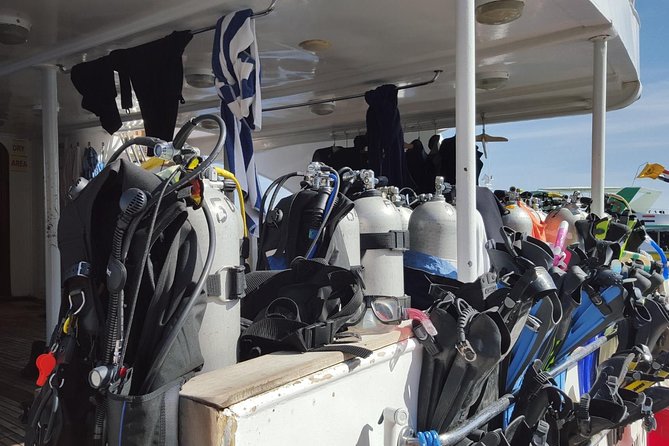
- Dive training is essential for beginners to learn necessary skills.
- Understanding and mastering buoyancy control is crucial for a successful dive.
- Proper equalization techniques are key to prevent ear pressure issues.
- Emphasis on safety measures and marine conservation enhances the diving experience.
Scuba Diving Basics
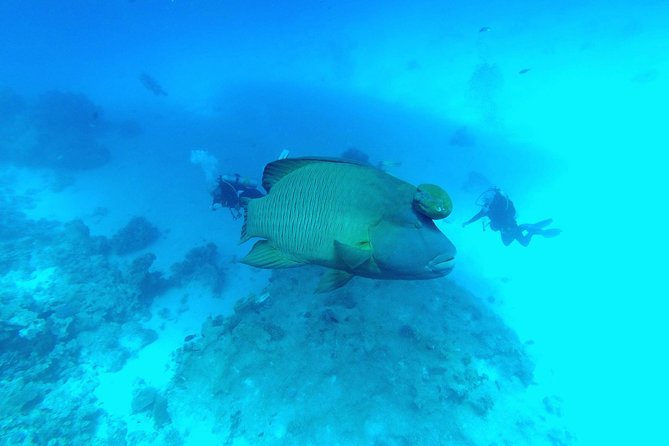
For those venturing into the underwater world for the first time, mastering the scuba diving basics is crucial to ensure a safe and enjoyable experience. Dive training plays a vital role in equipping beginners with the necessary skills to navigate the depths with confidence.
Understanding buoyancy control, equalizing pressure, and proper breathing techniques are essential components of dive training. Plus, an emphasis on marine conservation is instilled during these foundational lessons, highlighting the importance of preserving underwater ecosystems.
Equipment Essentials
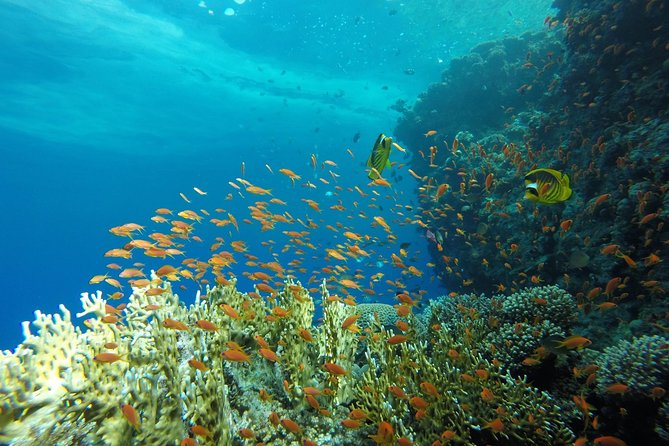
What’re the essential pieces of equipment required for a successful scuba diving experience?
To ensure a safe and enjoyable dive, divers need key gear like a mask, snorkel, fins, wetsuit, buoyancy control device, regulator, dive computer, and weights. Proper gear maintenance is crucial to prevent malfunctions underwater. Divers must also be proficient in various diving techniques such as equalizing ear pressure, controlling buoyancy, and using hand signals to communicate effectively underwater.
Familiarity with equipment setup and safety checks before each dive is paramount. Understanding how to navigate underwater, control descent and ascent rates, and manage air consumption are vital diving techniques for a successful dive adventure. Mastering these skills enhances the overall diving experience.
Safety Precautions
Ensuring proper safety precautions are taken is paramount for a successful and secure scuba diving experience. When diving, it’s crucial to be prepared for any unforeseen circumstances. Here are some key safety measures to consider:
-
Emergency Procedures: Familiarize yourself with emergency protocols such as how to signal for help and what to do in case of equipment failure.
-
Diving Signals: Learn and understand common diving signals to communicate effectively with your dive buddy underwater.
-
Equipment Checks: Regularly inspect and maintain your diving gear to ensure everything is in working order before entering the water.
Dive Locations
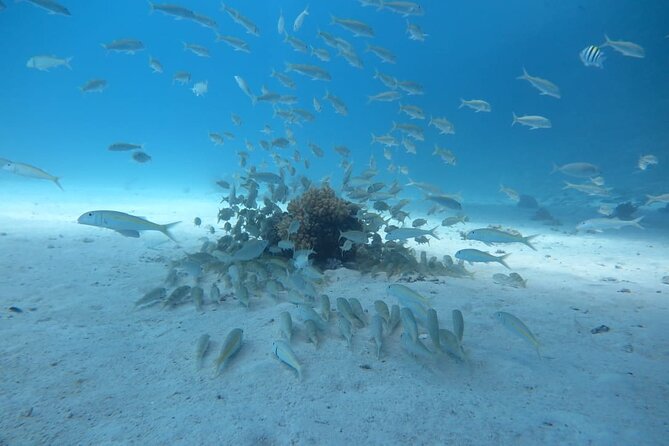
Exploring vibrant underwater ecosystems and stunning marine life, scuba diving enthusiasts seek out diverse and captivating dive locations worldwide. When it comes to dive site recommendations, places like the Great Barrier Reef in Australia, the Maldives, or the Galapagos Islands are often at the top of the list.
These locations offer not only breathtaking underwater landscapes but also opportunities for underwater photography enthusiasts to capture the beauty of exotic marine species. Many of these areas also actively support marine conservation efforts, ensuring that future generations can continue to enjoy the wonders of the underwater world.
Whether you’re a beginner or an experienced diver, these dive locations provide unforgettable experiences that showcase the importance of preserving our oceans.
Underwater Wildlife Encounters
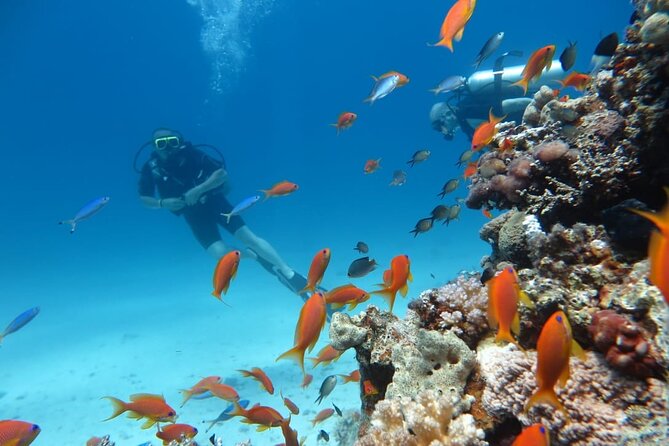
Traveling to renowned dive locations like the Great Barrier Reef or the Maldives immerses divers in a world where encounters with mesmerizing underwater wildlife create unforgettable experiences. Exploring beneath the surface reveals a vibrant ecosystem teeming with life. Here’s what divers can expect:
-
Marine Conservation: Witnessing marine life up close emphasizes the importance of conservation efforts to protect these fragile ecosystems.
-
Photography Techniques: Capturing the beauty of underwater wildlife requires mastering techniques like adjusting white balance and using natural light to enhance images.
-
Species Diversity: From colorful coral reefs to majestic sea turtles, encounters with a diverse range of species offer a deeper appreciation for the ocean’s biodiversity.
Certification Process
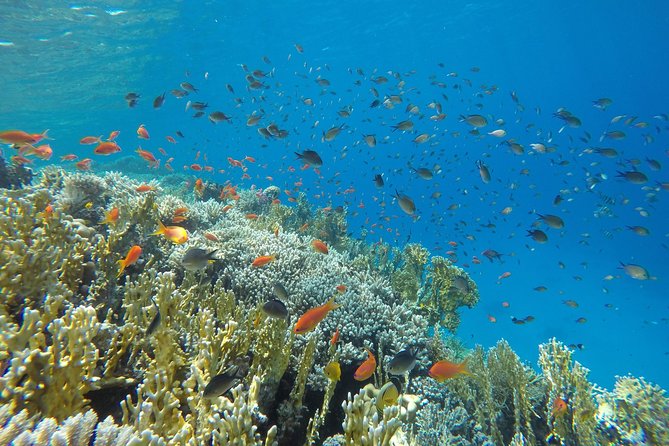
To become a certified scuba diver, individuals must complete a series of training sessions and assessments to ensure their readiness to explore the underwater world safely.
Training requirements typically include theoretical classes to understand diving principles, equipment usage, and safety protocols.
Practical skill development sessions in controlled environments like pools allow divers to practice essential techniques such as buoyancy control and regulator use.
As divers progress, open water dives under the supervision of instructors test their abilities in real-life diving scenarios.
Successful completion of these training components leads to certification, indicating that a diver has acquired the necessary skills and knowledge to dive responsibly and enjoyably.
Scuba Diving Tips
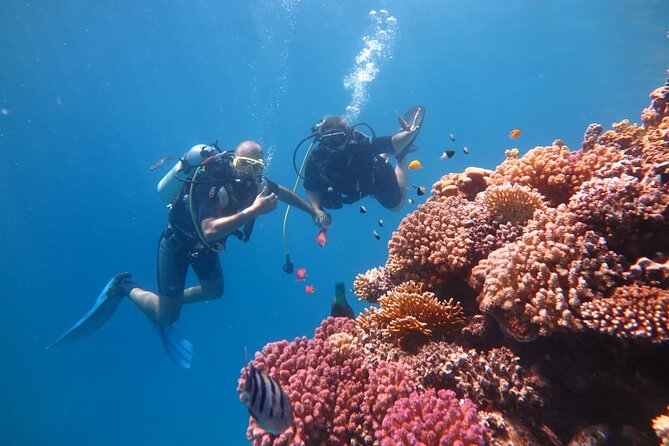
After completing the certification process, scuba divers can enhance their underwater experiences by following key scuba diving tips for safety and enjoyment. When diving, it’s crucial to pay attention to dive gear maintenance to ensure everything functions correctly underwater. Properly maintaining equipment like masks, regulators, and tanks can prevent malfunctions during dives.
Plus, mastering breathing techniques is essential for conserving air and staying calm underwater. Practice slow, deep breaths to optimize air consumption and avoid hyperventilating.
Lastly, always dive with a buddy to ensure mutual safety and have someone available to assist in case of emergencies. These tips can help divers have a smooth and enjoyable underwater adventure.
- Check and maintain dive gear regularly
- Practice effective breathing techniques
- Always dive with a buddy
Common questions
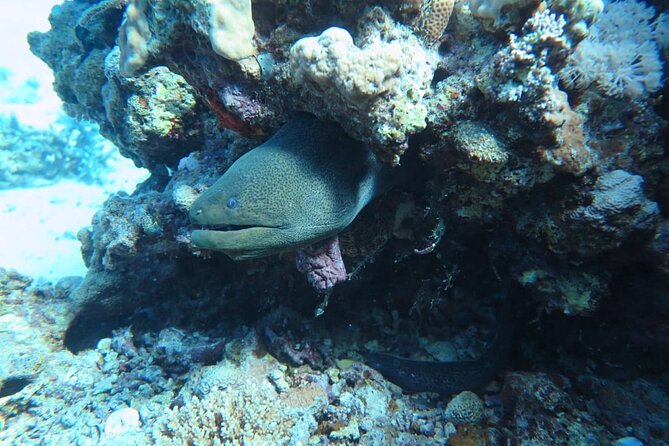
Are There Any Age Restrictions for Participating in Intro Scuba Diving?
Age requirements for scuba diving ensure safety. Safety precautions are vital for all participants. Viator offers detailed guidelines. Travelers can expect clear instructions on age limits. Customer support aids in clarifications for age-related queries.
What Is the Maximum Depth That Beginners Are Allowed to Dive During an Intro Scuba Diving Session?
Beginners are typically limited to depths of around 40 feet during intro scuba diving. Safety precautions, such as training requirements and necessary equipment, ensure a secure and enjoyable experience. These measures prioritize learner safety and gradual skill development.
Can Individuals With Medical Conditions Still Participate in Intro Scuba Diving?
Individuals with medical conditions must obtain medical clearance before participating in intro scuba diving. Fitness assessments and precautions are crucial for safety. It’s essential to consider individual health needs and follow guidelines to ensure a safe diving experience.
Is Prior Swimming Experience Required to Try Intro Scuba Diving?
Prior swimming experience is not required for intro scuba diving. Equipment requirements include a mask, fins, and a wetsuit. Training options are available to teach basic skills. Participants can enjoy diving without advanced swimming abilities.
Are There Any Weight or Size Limits for Participants in Intro Scuba Diving?
Weight restrictions and equipment sizing are crucial factors for participant safety. Limits ensure proper gear fit and buoyancy control underwater. Guidelines aim to optimize comfort, prevent accidents, and enhance the overall diving experience.
Last Words
Embark on the thrilling journey of introductory scuba diving and unlock a world of underwater wonders.
From mastering essential skills to encountering vibrant marine life, the experience is both exhilarating and awe-inspiring.
With proper guidance and safety measures in place, beginners can dive into this immersive aquatic activity with confidence.
So gear up, dive in, and prepare for unforgettable adventures beneath the waves.
The underwater realm awaits, ready to be explored.